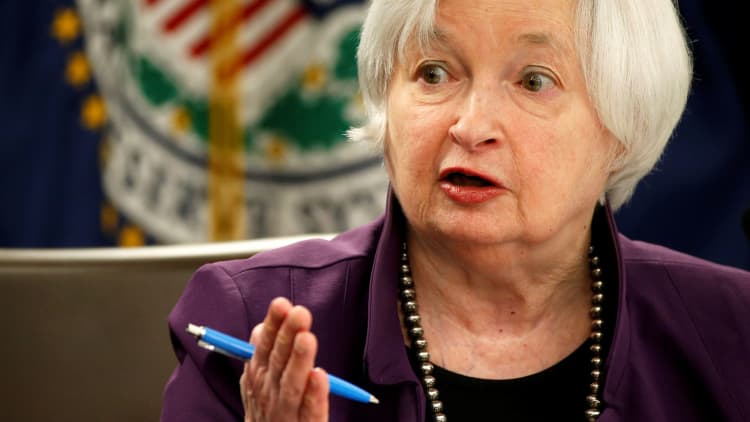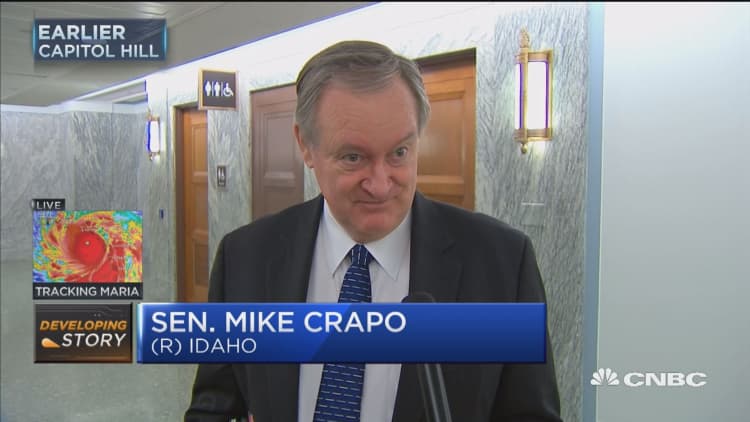
Goldman Sachs economists say it's more likely Congress approves tax cuts by next year, after a Senate deal on the budget resolution.
The economists say that the tentative agreement, announced by Republican Sens. Bob Corker of Tennessee and Pat Toomey of Pennsylvania, would call for instructions for a tax cut of up to $1.5 trillion be included in the budget resolution.
"Our understanding is that this figure represents their view of what a 'revenue neutral' agreement would cost when scored conventionally," Goldman economist Alec Phillips wrote. Phillips said assuming expiring tax cuts would be extended, it would work out to $1 trillion in new tax cuts over 10 years, or 0.4 percent of GDP over that period.
The Goldman economists assume the tax cuts would be phased in and could boost growth by 0.1 or 0.2 percentage points of GDP in 2018-2019. The deal announced by the senators is expected to result in a specific instruction in the budget resolution, which the Senate Budget Committee hopes to debate and pass next week.
The House, meanwhile, has a more restrictive tax cut instruction which would have to be reconciled with the Senate, Phillips wrote.
The tax legislation is expected to begin to move forward with the House Ways and Means Committee likely to begin debate by late October. The White House and Republican congressional leaders are expected to release an outline of tax reform that includes a corporate rate in the low 20s, business investment incentives, profit repatriation, a move to a new territorial tax system and middle-income tax cuts.
"While we have recently been skeptical tax reform could happen because of the continued focus on revenue-neutrality as a principle, if a budget resolution is finalized that resembles the recently floated deal, enactment of tax reform in early 2018 would once again become the baseline expectation," Phillips wrote.
WATCH: Republicans eyeing $1 to $2 trillion in tax cuts



